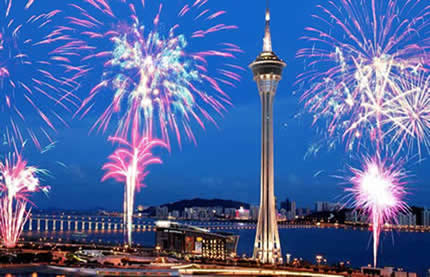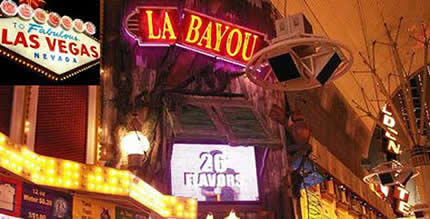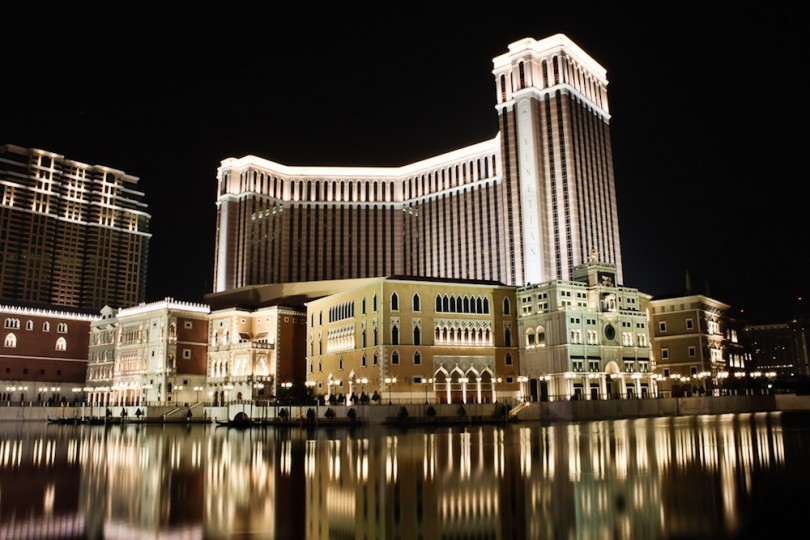This article first appeared in the Nov 2009 (pre-launch) and Jan/Feb 2010 issues of World Gaming magazine.
Las Vegas is no longer the gaming capital of the world. Macau has not only taken the lead when it comes to gaming revenue but excels in delivering the services that its clientele actually want.
Las Vegas is an American icon that was built on the gaming dollar. The good old days when men dressed in dinner suits, smoked cigars and chatted to show girls, has been replaced with five dollar buffets, cheap shows and expensive strip bars. Las Vegas had a product that worked but then it started trying to reinvent itself, leaving average gamblers scratching their heads in confusion. Macau on the other hand appears to be very comfortable with its style and operation and looking at the figures, the future is bright.
Many people think gaming in Macau is a new industry but gaming was first legalized in 1847 in an attempt to generate revenue for the government when Macau was a Portuguese colony. After going through a handover similar to Hong Kong’s, Macau and the gaming industry has continued to enjoy rejuvenation and protection. A significant percentage of the Macau government’s revenue comes from gaming so the industry is well run and regulated. The racing industry is another gaming related industry that thrives on the island with the racecourse on Taipa Island and the greyhounds doing big business. Macau is comfortable with gaming because the governing bodies embrace the industry instead of fighting against it.
In 2006 Macau’s gaming revenue surged by 22 percent which made it the biggest gaming market in the world. Experts wondered if the figures could continue given the rapid nature of growth and the pressure on expendable income generated by the ‘global financial crisis’. Gaming revenue in Macau increased by a stunning 31 percent in 2008 to more than $14 billion even after a bad middle quarter. In August 2009 revenue again surged to its highest-ever monthly figure rising 17 percent from the previous year. This simply and effectively demonstrates the newfound resilience of the Asian market compared to that of the US. There is obvious potential for further growth and a far brighter long term picture seems clear.

In 2006 Macau’s gaming revenue surged by 22 percent which made it the biggest gaming market in the world
The secret to success in Macau has been its concentration on doing what it does well. You can always find a table to play on in Macau because the casinos’ number one policy is to offer its clients the opportunity to gamble. By comparison, when it’s busy in Vegas it can be difficult to find a seat at a table game. Customers in Vegas are constantly bombarded by hundreds of things to do off the tables which seem strange for a city that was built on the gambling dollar. Casino management in Macau realise that their clients want to gamble and they avoid creating obstacles that will divert their customers’ attention.
Macau also offers good quality accommodation, food and drink at fair and reasonable prices. The casinos don’t go crazy on giving away free services to all clients but they certainly provide the basics. If you want to spend a little more on quality accommodation and food there are those options available too. As the market becomes more mature in the years to come, the casinos will fight harder to lure customers, but at the moment demand is high and the casinos just have to keep things moving along.
Macau also offers a uniquely Asian feel to its customers. From the start Macau didn’t fall into the trap of trying to duplicate Las Vegas. Of course there are similarities but these are all on the surface. Both have big casinos that offer a vast array of accommodation, dining and gaming options. After these obvious similarities the two places are very different. Macau doesn’t struggle with its identity. It is proud of everything it is and doesn’t make excuses for what it is not. Macau is part of China, but still draws heavily on its Portuguese local history and culture. Its close proximity to Hong Kong makes this a very busy part of the world and one that offers an incredible amount to locals and tourists alike. This unique Asian feel is something that should be held on to at all costs.
Macau is also central to so many of the wonders of Asia. Las Vegas is isolated in the middle of the American desert. When you take a trip to Vegas there is nothing else to do other than dine on the Vegas menu that has become bland and tiresome especially after multiple sittings. By comparison, China, Japan, Korea, Singapore, South East Asia and the Philippines are all just a short plane ride from Macau. Even gamblers from the Middle East and most parts of Europe find Macau a far more convenient destination than Vegas. Over 2 billion people live within five hours flying time of Macau, compared to just over 400 million in the same radius of Las Vegas. Macau is a fresh interesting place that will keep the international tourists entertained on and off the tables.
Las Vegas, in its haste to turn away from its primary gambling function to other revenue raising areas, has created a sense of confusion within the marketplace. Added to this, the scene is not as fresh as it should be. It tries to sell itself as an adult playground where “what goes in Vegas stays in Vegas”. This is a tired routine and one that is not all that true. The starry eyes waitress looking for an acting break has been replaced by bored hookers while the colourful mobster has been replaced with suit wearing executives that graduated from business college. In the entertainment venues the Sammy Davis Juniors and Frank Sinatras have been succeeded by circus tricks and blue men. Gone are the famous piano bars – replaced by thumping night clubs full of young kids guzzling designer drugs and vodka Red Bulls. The romance is certainly gone and the charm is wearing very thin.
Also gone are the days when Vegas offered a super cheap holiday. Hotels these days are more expensive; and there is cheap food but it is barely edible. Service is not what it once was. In the good old days an attractive young waitress would have a chat to you in the hope of getting a $5 tip. Now you have a robotic waitress with plastic boobs plonk your drink down, grab your $1 tip, and scowl off to the next punter to get another buck. Jobs have been plentiful in the past but with the recent financial crisis cocktail waitresses might have to work harder for their dollar and service might improve.
Vegas has also tried to target the family dollar claiming to offer good wholesome family fun. This meant the casinos had to turn their attention away from gaming to entertaining younger visitors who are not old enough to play dice, baccarat or poker. Another diversion is in attracting corporate dollars which can be lucrative for casinos hosting conferences. Las Vegas is a central location for most American corporations and casinos offer a perfect place to hold annual general meetings and ‘reward getaways’ for hard working staff. Although many organisations are cutting back in these areas at the moment, large successful companies still need to hold these events and they pay big dollars in Vegas for the privilege. The problem for casinos is that their main bread winners – the gamblers – are sick to death of fighting with the hordes of conventioneers for a drink at the bar, or having their late checkout disrupted by screaming kids from the pool deck.

Vegas: Trying to be all things to all people?
Just like many other major US cities, Las Vegas has its urban problems. Crime is on the rise and there are parts of the city that are run down, dirty and unsafe. It tries to continue its façade as the happy go lucky place where dreams are made from nothing, but in reality it has lost much of that appeal. Macau is by no means without a seedy past, but it feels safe and clean which is good if you rely on the tourist driven gambling dollar to pay for everything.
Macau looks to be avoiding the pitfalls Las Vegas has dived into. It has based its operation around a target market and is offering a good straightforward service. Let the families go to Disneyland in Hong Kong and leave Macau to entertain the adults. The advantage is that Macau can learn from what Las Vegas does, taking the good points and avoiding the bad ones. The most important thing Macau can do is to maintain a uniquely Asian flavour and not try and be something that it is not.







